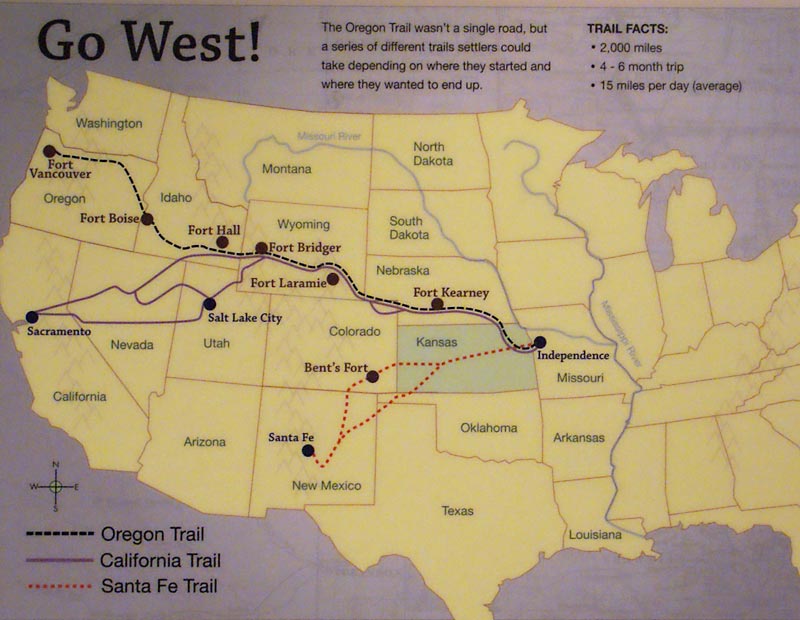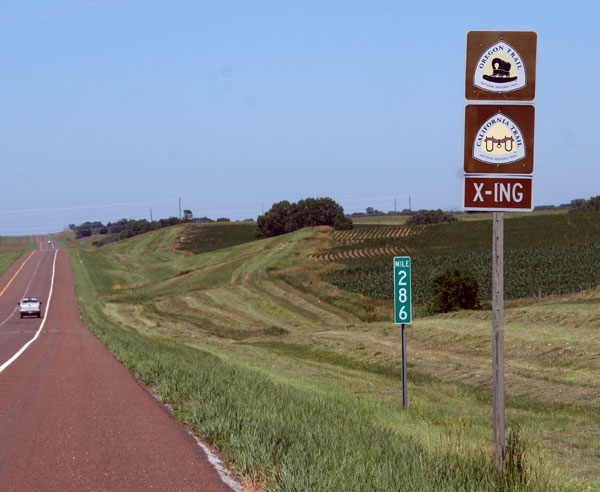
An approximate map of the Oregon/California, and Santa Fe trails

This sign is seen along the route. Sometimes it marks the route to drive for those following the trails by car, and sometimes it marks where the trail crosses the highway, as is the case here.
The following links take you to the blow-by-blow account of our trip following the Oregon trail:
Missouri - Kansas portion
Nebraska portion
Across Wyoming to the Continental Divide
From South Pass to Fort Bridger
To follow the rest of our trip this summer go to Summer 2013